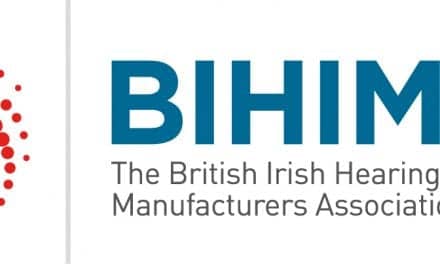Epigenetics is the expression and control of genes. The epigenetics involved in the inner ear is a critical part of the mystery of hearing. A team led by Professor Karen B. Avraham, vice dean of the Sackler Faculty of Medicine at Tel Aviv University, has now created the first map of “methylation”–one of the body’s main epigenetic signals–that reflects the functioning of the inner ear in its entirety, the school announced on its website.
Avraham collaborated on the study with TAU doctoral student Ofer Yizhar-Barnea and Professor R. David Hawkins and other colleagues from the University of Washington and the Fondazione Istituto Italiano di Tecnologia in Italy. Their research was published in a study in Scientific Reports on November 26.
“Our analysis of the DNA methylation dynamics revealed a large number of new genes that are critical for the development of the inner ear and the onset of hearing itself,” Avraham said. “Instead of looking at one gene at a time, we employed sophisticated genomic technologies to examine all the genes in one snapshot. This allowed us to have a genome-wide view of the regulatory dynamics of the inner ear as a whole.”
The life cycle of hearing
Humans are born with a lifetime allowance of inner ear hair cells, the inner ear cells responsible for hearing. Once the cells die due to genetic mutations, excessive exposure to noise, ototoxic drugs, or aging, they don’t regenerate. Among the elderly, hearing loss is associated with a higher risk of dementia, and hearing aids and cochlear implants provide only partial solutions to an urgent medical issue facing young and old alike.
“Epigenetic signals–among them methylation–don’t allow the genes that could regenerate hair cells to be turned on,” Avraham said. “If we can discover how these genes are controlled–how they’re turned on and off–we may be able to modify these signals to allow regeneration to happen.
“This would allow us to transform cells in the inner ear to become functional hair cells or create new ones to allow for proper hearing. We hope that our epigenetic maps of the inner ear will provide entry points into the development of therapeutics for hearing loss.”
The role of epigenetics
Epigenetics does not change the genetic code, but how the code is read. Methylation is the direct addition of a chemical group (methyl, CH3) onto the C nucleotides in the DNA molecule and is considered one of the most basic epigenetic mechanisms. DNA methylation serves as the on/off switch for the genome.
Professor Howard Cedar of The Hebrew University of Jerusalem, reportedly a world authority on methylation who was not involved in the research, said, “While our genes provide the instructions for how to make the building blocks of the hearing system, understanding how these components are controlled to provide proper hearing requires additional epigenetic information. The research directed by Professor Avraham and her colleagues provides, for the first time, insights into how this works and reveals important clues on how we may be able to prevent or correct a wide variety of hearing ailments.”
In the course of their research, the scientists discovered that inner ear cells follow a similar methylation pattern as the brain and neurons, suggesting they have a similar plasticity. This plasticity may allow for the introduction of regulatory elements to induce regeneration. The scientists validated their findings using CRISPR-Cas9 gene editing technology. They found a critical regulatory element for a deafness gene, connexin 30.
“The development of this work was constrained by our limited knowledge of epigenetic mechanisms involved in the inner ear,” Avraham concluded. “Epigenetic modification of gene expression, possibly by reversing abnormal DNA methylation, may offer a way of awakening the very genes that block regeneration from occurring.”
The research was supported by the United States–Israel Binational Science Foundation, the Israel Science Foundation, the National Institutes of Health–NIDCD, and the UK Action on Hearing Loss.
Original Paper: Yizhar-Barnea O, Valensisi C, Jayavelu ND, et al. DNA methylation dynamics during embryonic development and postnatal maturation of the mouse auditory sensory epithelium. Scientific Reports. 2018;8(17348).
Source: American Friends of Tel Aviv University, Scientific Reports





I do hope this comes soon! I am 72 and have approximately 4% hearing in each ear. Hearing aids are helpful, but limited with so little hearing to work with. I read lips pretty well but it has drastically limited my life options. Will pray for this encouraging research!
Hope to see help for those with hearing loss young and old! My boys are 19 and 16 and both were born with Mild to Moderately severe sensorineural hearing loss. They both have been wearing hearing aids since they were babies.
Amazing hope to see this in my life time I’m 78 and deaf